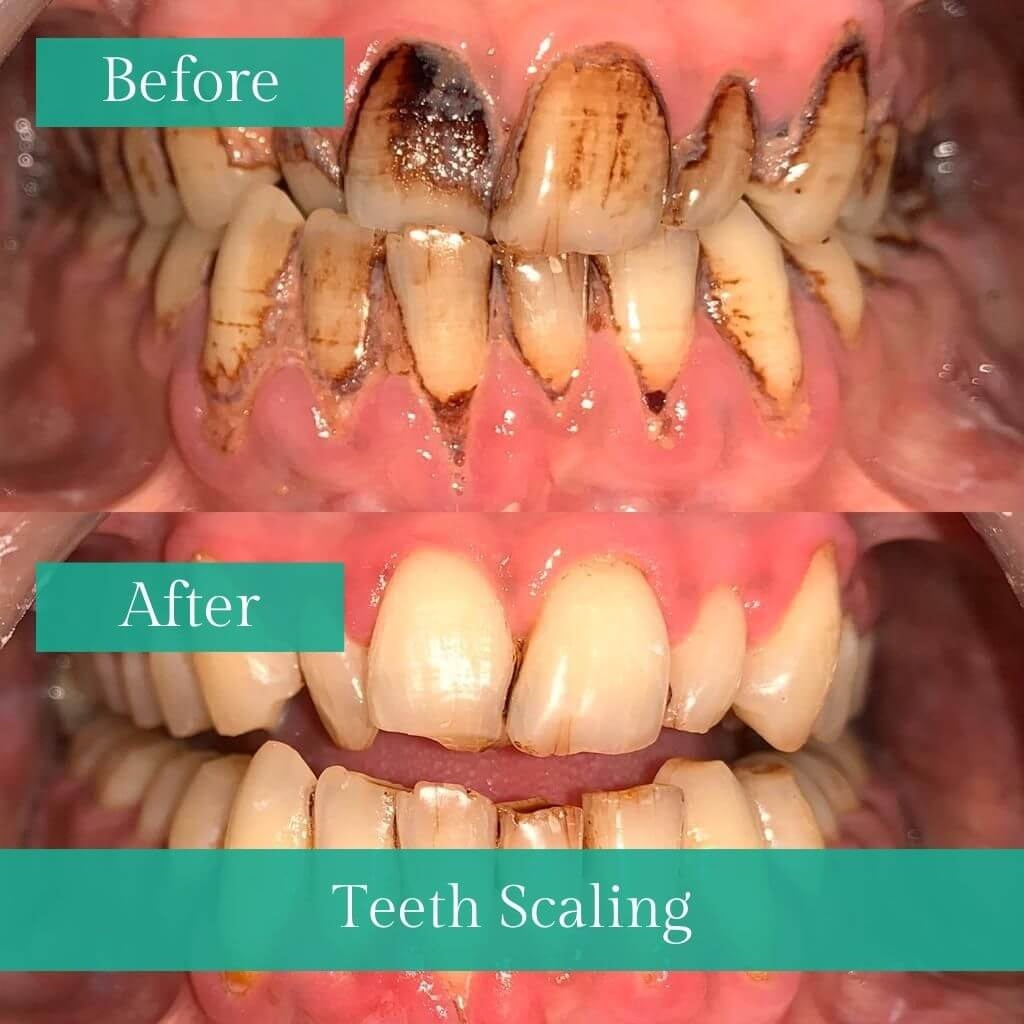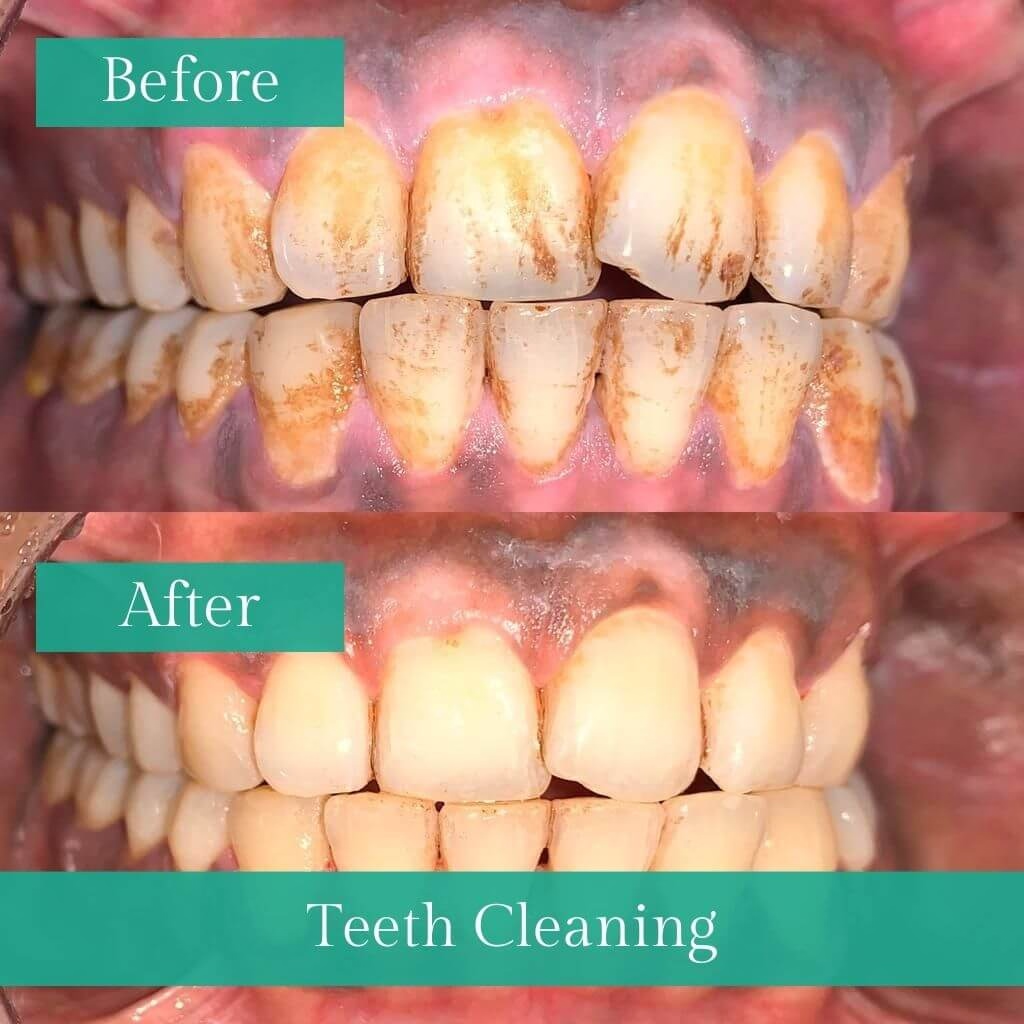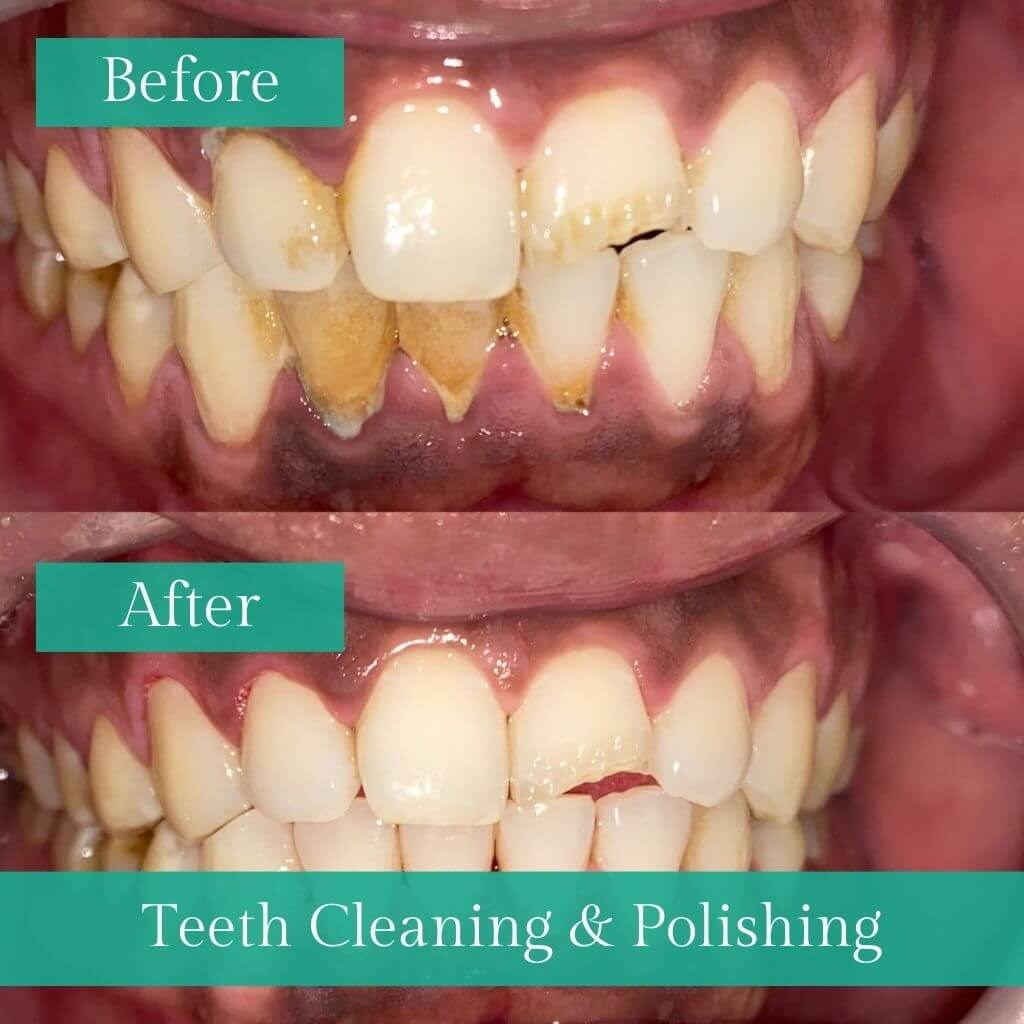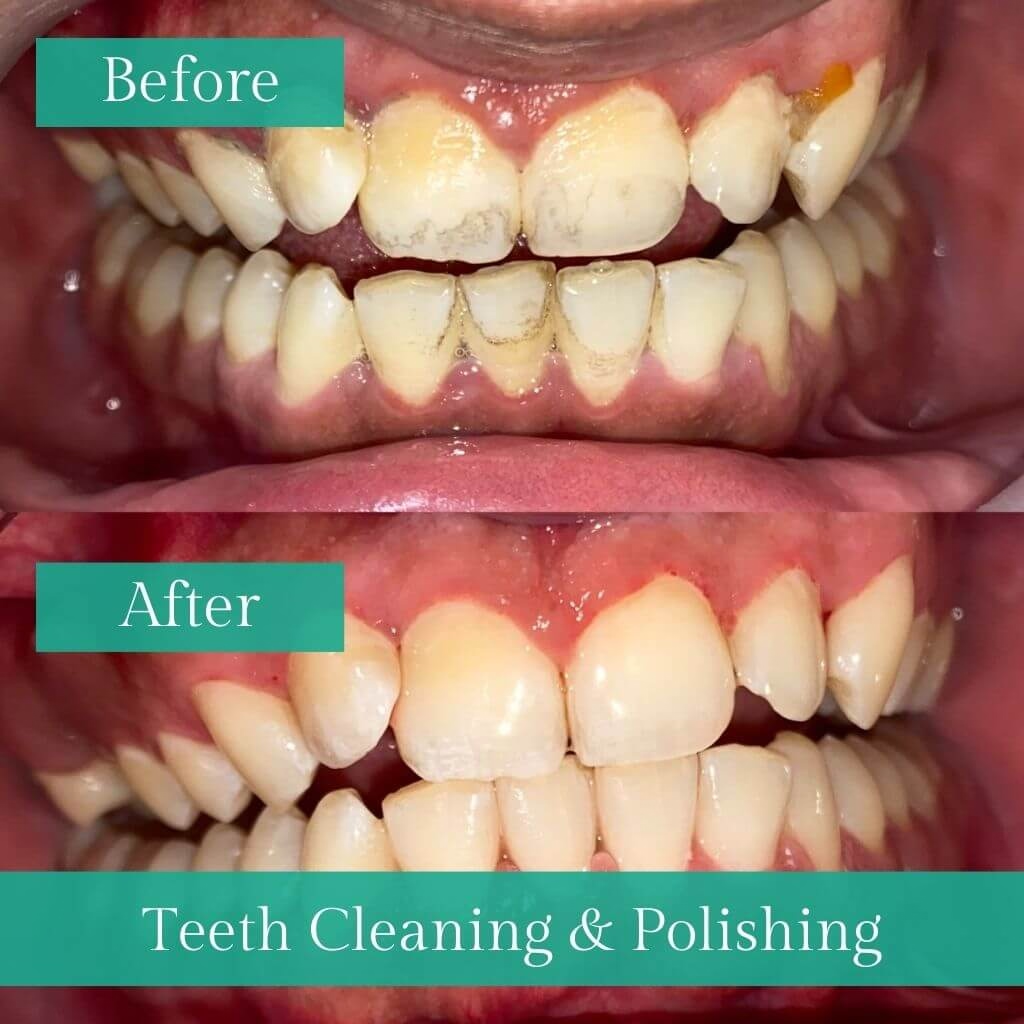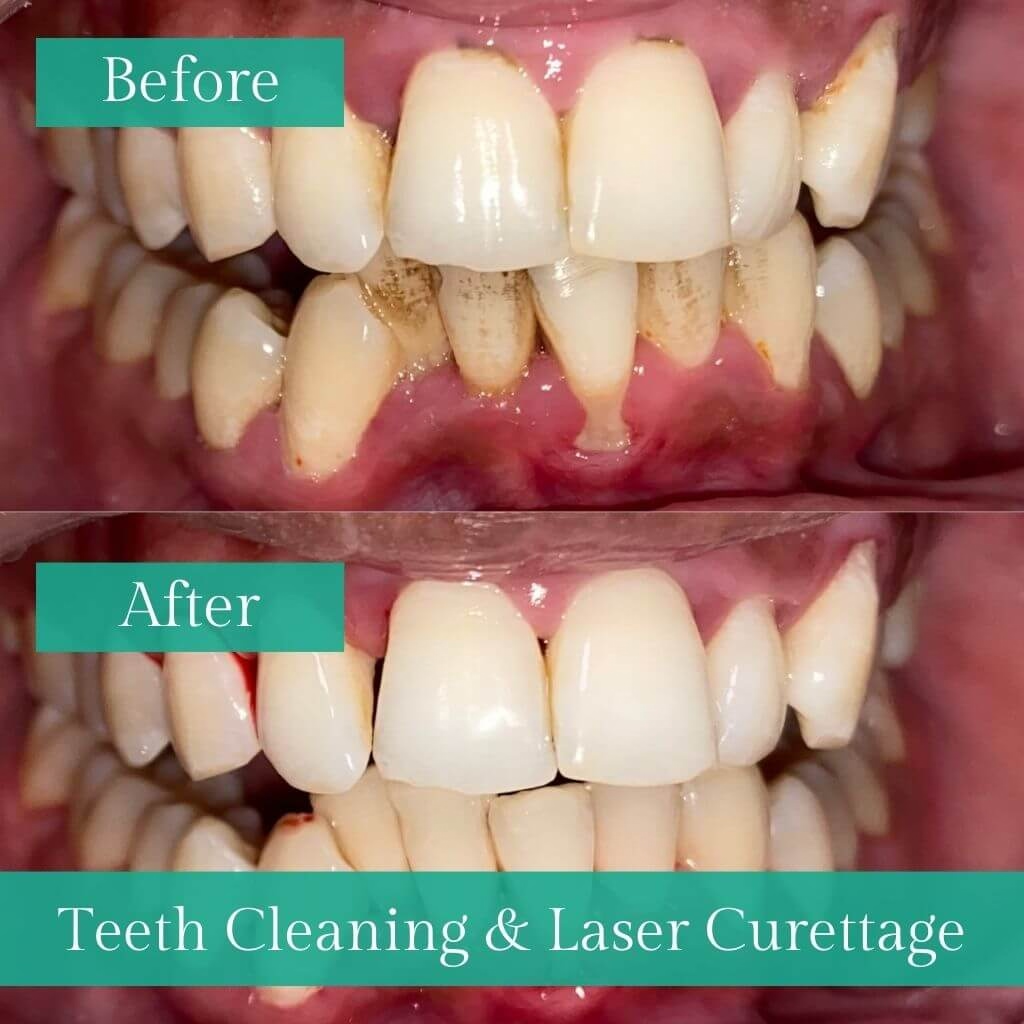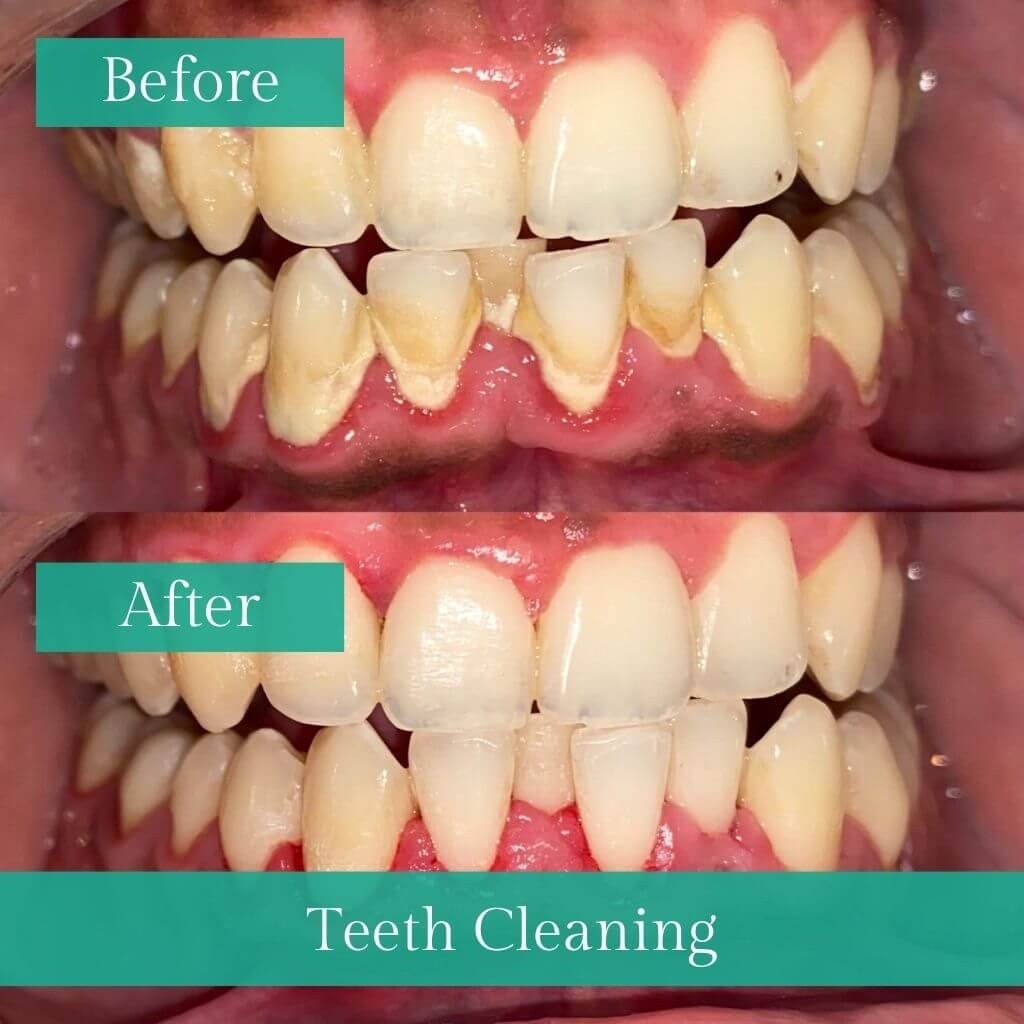Dental cleaning/ Scaling / Teeth cleaning, often referred to as dental prophylaxis, is a preventive dental procedure carried out by oral health experts to remove plaque, tartar (calculus), and surface stains from the teeth. This cleaning process is essential for maintaining oral health, preventing dental issues, and promoting a clean, fresh feeling in the mouth. Dental teeth cleaning is typically a routine part of regular dental check-ups and is crucial for keeping teeth and gums in good condition. The procedure involves thorough scaling to remove deposits on tooth surfaces, followed by polishing to smooth the tooth surfaces, making it more difficult for plaque to accumulate. Regular dental cleanings help prevent cavities, gum disease, bad breath, and other dental problems.
Types of Teeth cleaning
Routine Dental Cleaning (Prophylaxis)
This is the standard teeth cleaning most people receive during their regular dental check-ups. It involves removing plaque, tartar, and surface stains, followed by tooth polishing.
Deep Cleaning (Scaling and Root Planing)
This type of cleaning is usually recommended for individuals with gum disease (periodontal disease). It involves more extensive removal of plaque and tartar, not only from the tooth surfaces but also from below the gum line (scaling). The root surfaces are then smoothed (root planing) to prevent bacteria from adhering and to promote the healing of the gums.
Periodontal Maintenance
After deep cleaning for gum disease, regular periodontal maintenance cleanings are scheduled to monitor the gums and maintain periodontal health. These cleanings are more frequent than routine cleanings and are vital for preventing the recurrence of gum disease.
Full Mouth Debridement
This type of cleaning is performed when the build-up of tartar and plaque is so extensive that a thorough initial cleaning is necessary before a comprehensive evaluation of oral health can be conducted.
Air Polishing
This advanced cleaning technique uses a jet of water, compressed air, and fine particles to remove surface stains and plaque. It's particularly effective for removing coffee, tea, or tobacco stains.
Why is Teeth Cleaning important?
Plaque and Tartar Removal
Dental cleaning effectively removes plaque and tartar build-up on teeth. Plaque, a sticky film of bacteria, can harden into tartar, which cannot be removed through regular brushing. Cleaning prevents tartar from causing tooth decay and gum disease.
Prevention of Gum Disease
Gum disease (periodontal disease) can result from untreated plaque and tartar build-up, leading to inflammation, gum recession, and tooth loss. Regular cleaning helps prevent and manage gum disease, preserving gum health.
Cavity Prevention
Dental cleaning reduces the risk of cavities by removing the initial stages of tooth decay. The procedure helps maintain the integrity of tooth enamel, preventing cavities from progressing.
Fresh Breath
Plaque and tartar build-up can contribute to bad breath (halitosis). A dental cleaning removes bacteria that cause odours, making the mouth fresher and more pleasant.
Early Detection of Dental Issues
During dental cleaning, the dentist or dental hygienist can identify early indications of potential dental problems, such as cavities, gum disease, or oral cancer. Detecting issues early allows for timely intervention and more effective treatment.
| Myth | Fact |
|---|---|
| Scaling / Teeth cleaning is a painful process | NO! Scaling in modern dentistry employs the use of ultrasonic instruments, which dislodge and remove the deposits from the surface of your teeth in a painless manner. |
| Scaling / Teeth cleaning removes the outer layer of the teeth. | NO! Professional cleaning or scaling only dislodges the deposits, debris, and calculus from the surface of the tooth and does not alter the structure or layers of the tooth. |
| Scaling / Teeth cleaning makes teeth weak. | NO! Teeth become weak when gums around them recede or get inflamed due to deposits. Regular cleaning helps in maintaining gum health and keeps teeth strong. |
| Scaling / Teeth cleaning makes teeth sensitive. | NO! Teeth may transiently feel sensitive after a cleaning process because of the removal of tartar or calculus from their surface, exposing the tooth to an oral environment. If hygiene is well maintained, then the gums will creep up to take their original place on the teeth, and sensitivity will go away. |
| Scaling / Teeth cleaning is done with dental drills. | NO! Scaling or professional teeth cleaning is done with ultrasonic instruments and never with drills, as they make sure that the surface structure of the tooth is left intact while removing the external debris and deposits. |


